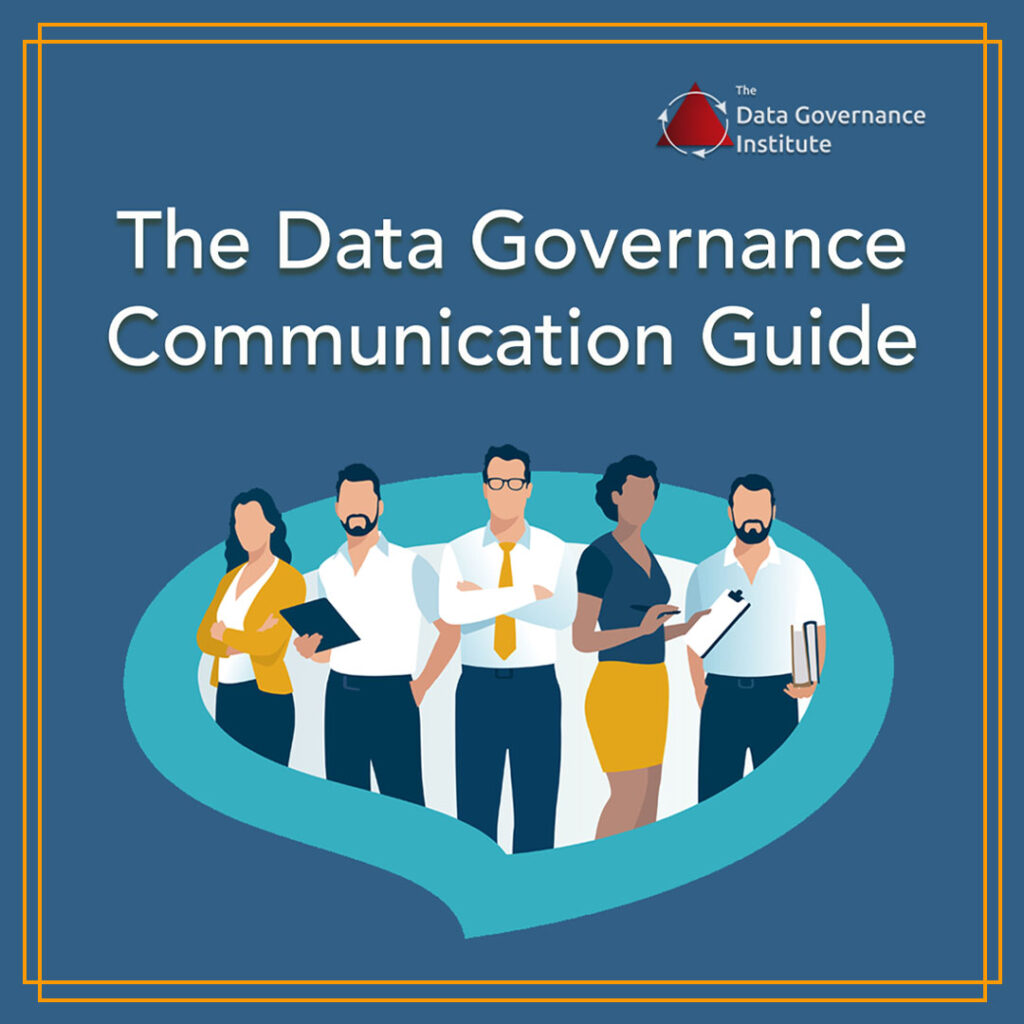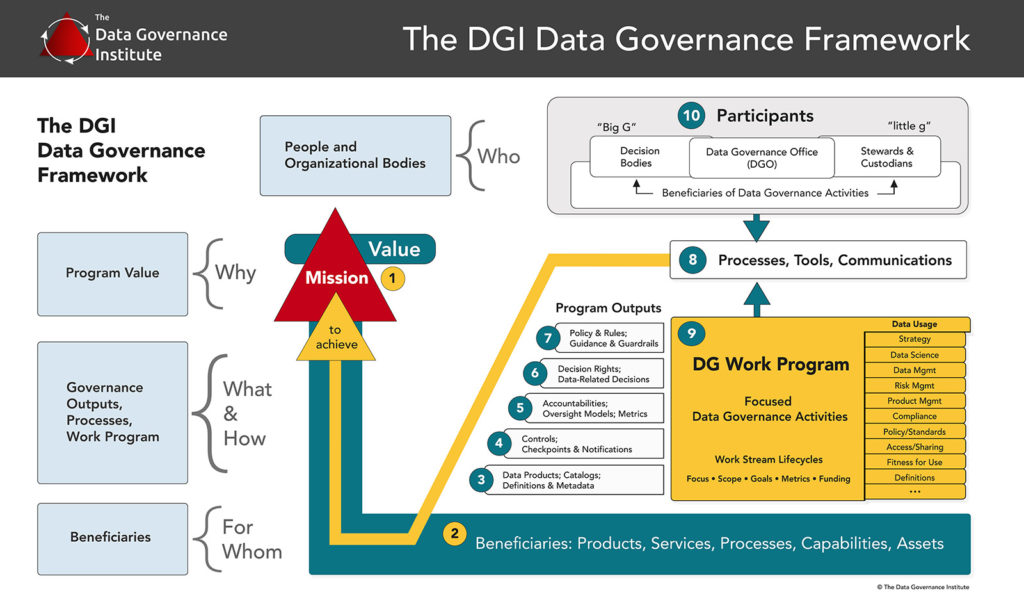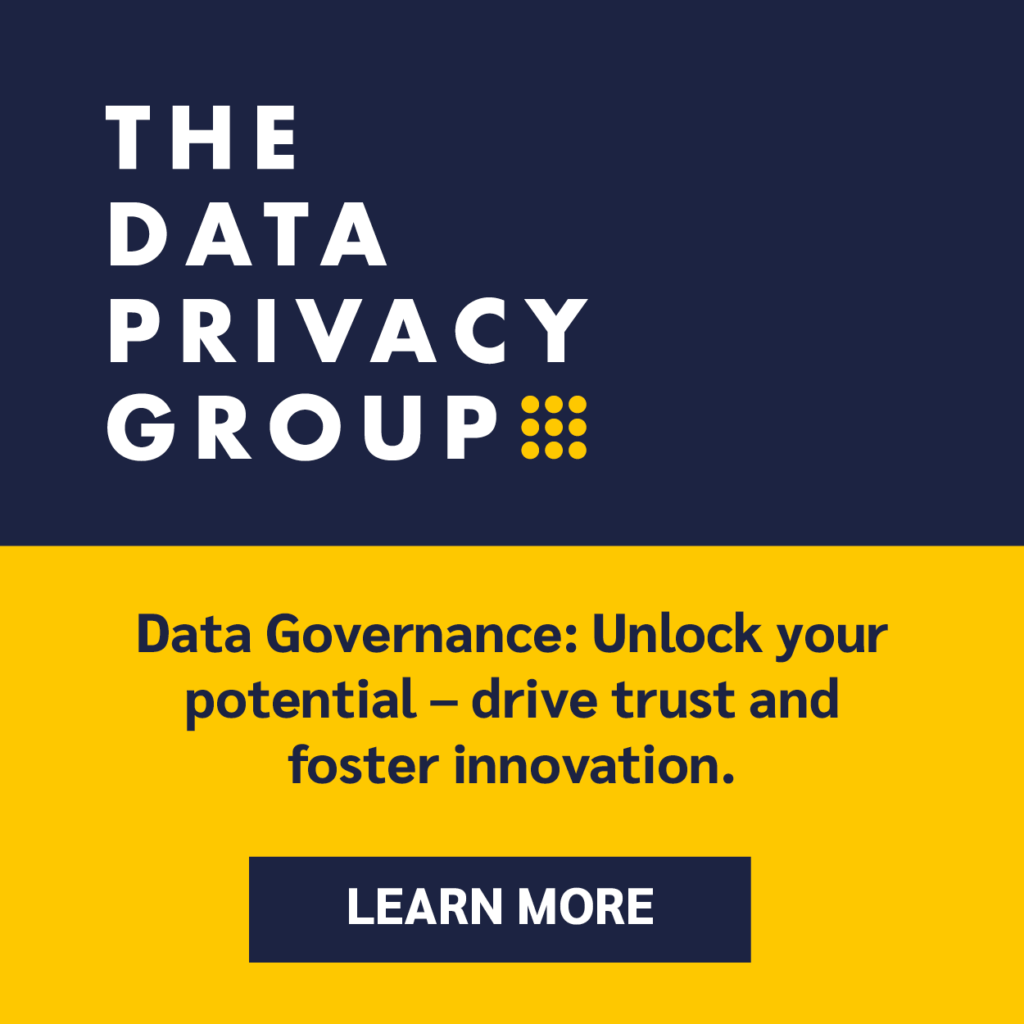Framework Component #3: Data Products
Most Data Governance programs develop or contribute to Data Products that are used by teams across the organization. These products are intended to be reusable assets, designed for a specific purpose. Often, they are trusted datasets, which have collected data from multiple relevant sources. Designed to be “trusted sources of truth,” these data products have processed raw data to ensure appropriate confidentiality/privacy, data quality, and standardization.

They are often provided via catalogs, inventories, or self-service portals. Each one is presented with metadata that makes it identifiable and understandable to intended users. Often, data products are presented with certifications that they meet governance and compliance requirements.
Data products may be presented as dashboards, analytics models, data models, datasets, data feeds, or in other formats. Users should be able to determine when the products were captured and presented, their boundaries, the time period that the data describes, and other characteristics of the product. They should be accompanied with data usage and sharing instructions and constraints, and applicable compliance requirements.
Data glossaries and definitions are necessary to understand the meaning of individual data elements used in data products, systems, and unstructured information.
Data Governance staff are often represented in multi-functional teams that develop data products and glossaries. They may be expected to represent the needs of legal and compliance stakeholders, identifying and communicating features, constraints, and controls that may not be obvious to technicians.
Read more: Data Governance Glossary




